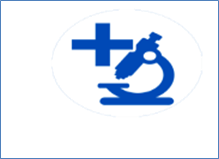5В120200-Veterinary Sanitary
Model of the graduate of the Bachelor’s
of the educational program «Veterinary sanitation»
 Veterinary and sanitary doctor - a specialist engaged in ensuring the quality control and safety of food products in their production, storage, export and import, is responsible for the safety and sanitary protection of the country. Veterinary and sanitary doctor - a specialist engaged in ensuring the quality control and safety of food products in their production, storage, export and import, is responsible for the safety and sanitary protection of the country. |
| The purpose of the educational program |
|
Training of highly qualified, competitive, innovative-oriented specialists capable of ensuring biological and food safety, to carry out veterinary and sanitary examination of products in accordance with national and international requirements. |
| Awarded degree |
| Specialist of Veterinary of the educational program «6B09102-Veterinary sanitation» |
| List of specialist positions |
| specialist of the Department of food hygiene; specialist of sanitary and hygienic studies; veterinary and sanitary doctor (expert); veterinary doctor (bacteriologist); veterinary doctor (virologist); veterinary doctor (toxicologist); veterinary and sanitary inspector; researcher; teacher of College, higher educational institutions. |
| Objects of professional activity |
|
enterprises for the production, processing, storage, sale of food and feed of animal and vegetable origin; laboratory of veterinary and sanitary examination; institutions of the state customs service, sanitary and epidemiological service and checkpoints; enterprises for the manufacture and control of biological products and biologically active substances; research institutes, public and private organizations of veterinary profile. |
| Functions of professional activity |
|
1) ensuring food safety: carrying out veterinary measures to improve the productive qualities of animals; ensuring the production of good-quality veterinary and sanitary animal products; 2) ensuring the Biosafety of humans and animals: diagnosis, prevention and elimination of infectious and non-communicable diseases of animals, birds, fish and bees; protection of the population and the territory of the country from diseases common to humans and animals; compliance with veterinary and sanitary rules in the production and sale of biological products, medicines; 3) ensuring environmental safety: protection of the territory from anthropozoonotic diseases; protection of the country from substandard waste of the food industry, enterprises for the production of raw materials and biological products; determining the quality of products of animal and plant origin; promoting the implementation of Kazakhstan's obligations under the requirements of international conventions and requirements; teaching veterinary, biological and environmental disciplines in educational institutions. |
| Personal characteristics |
|
General civil qualities: patriotism, expressed in love for the Motherland, citizenship, law-abiding, understanding of their civil rights, freedoms and duties. Spiritual and moral qualities: humanity, honesty, conscientiousness, tolerance, ethics, decency, mercy. Intellectual qualities: erudition, critical and emotional thinking, knowledge of English, information and communication technologies, the ability to learn throughout life. Business qualities: diligence, individual responsibility, teamwork, adaptability, ability to analyze, ability to make non-standard decisions. Organizational and volitional qualities: purposefulness, self-criticism, organization, sociability, the presence of a common culture, will, ability to achieve the goal. Special qualities: love for animals, nature. |
| Bachelor's learning outcomes - 6B09102-Veterinary sanitation (Dublin descriptors) |
|
At the end of the educational program graduates are able to: 1) demonstrate knowledge and understanding in the field of study, based on advanced knowledge of the area; 2) apply knowledge and understanding at the professional level, formulate arguments and solve problems of the studied area; 3) collect and interpret information to form judgments taking into account social, ethical and scientific considerations; 4) communicate information, ideas, problems and solutions, to both specialist and non-specialist audiences; 5) learning skills necessary for independent continuation of further education in the field of study. |

